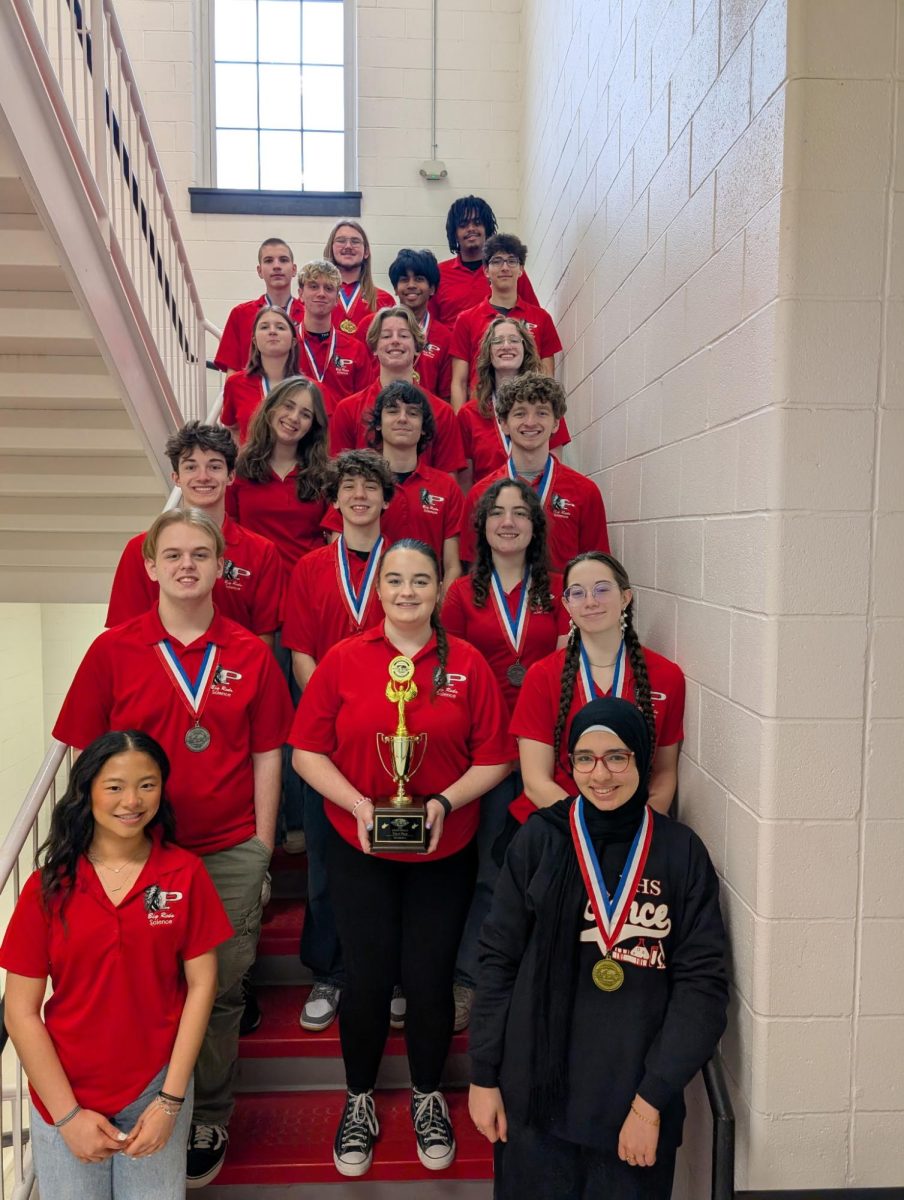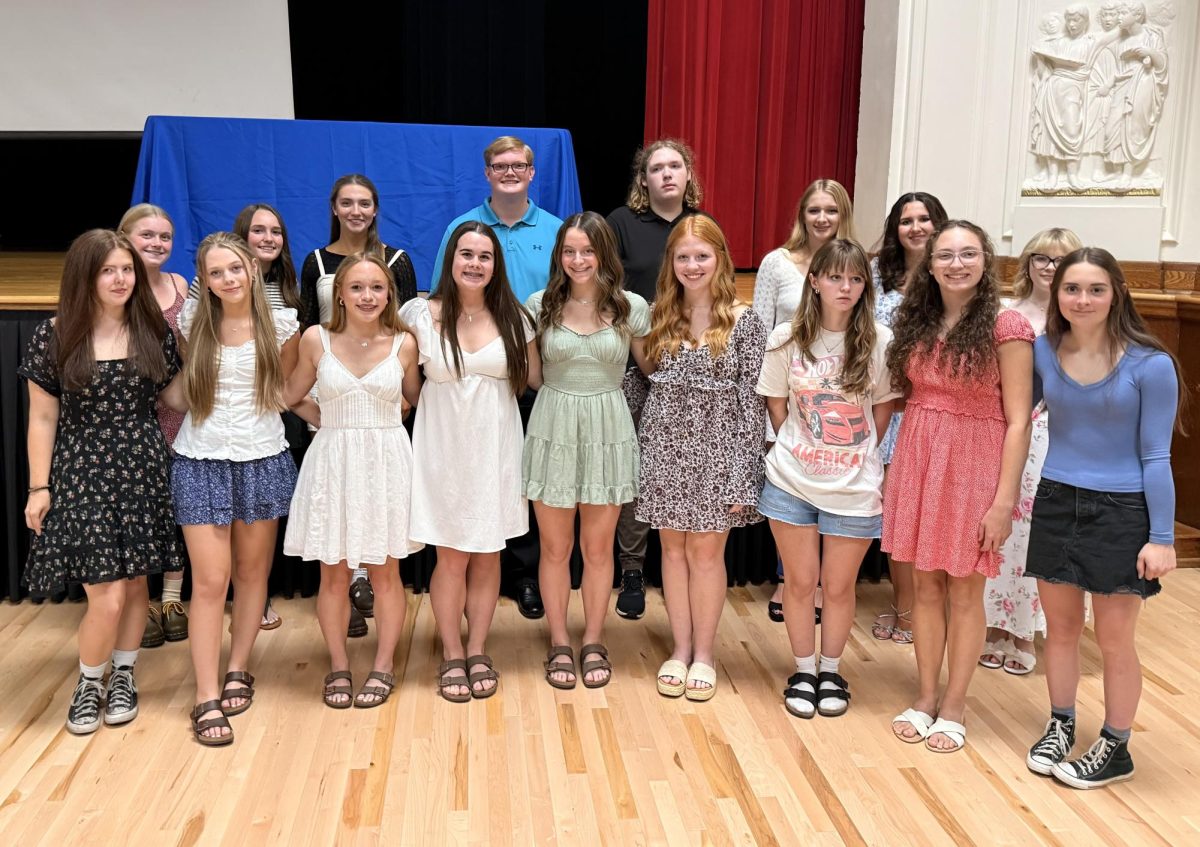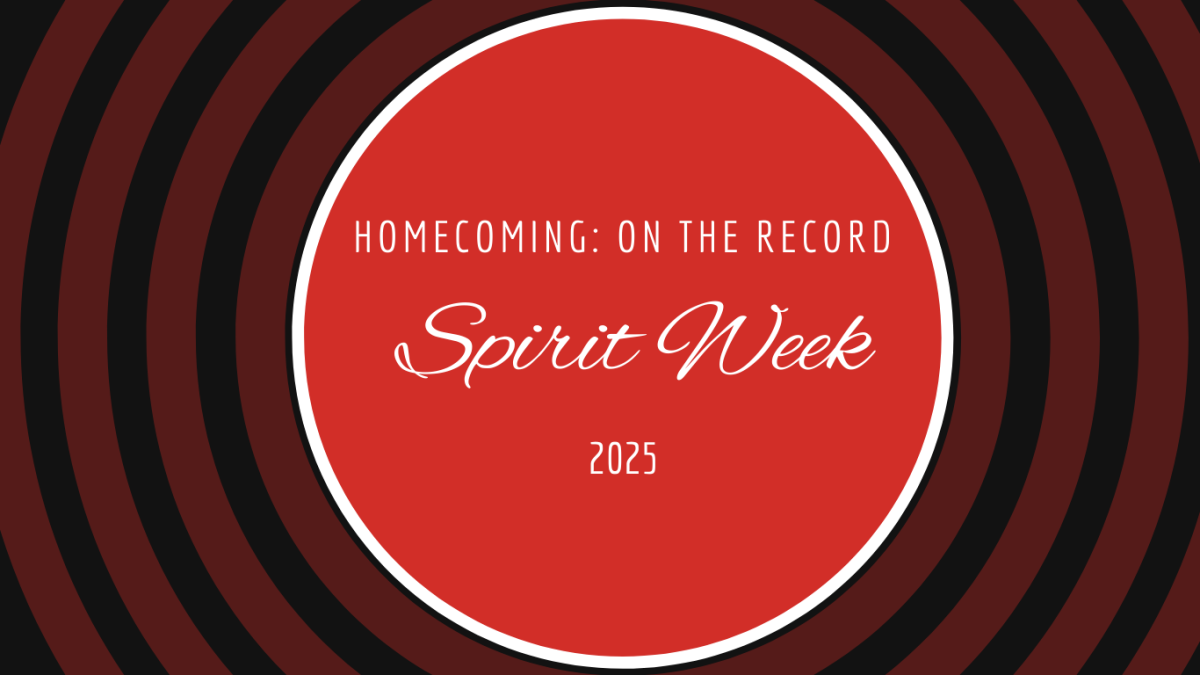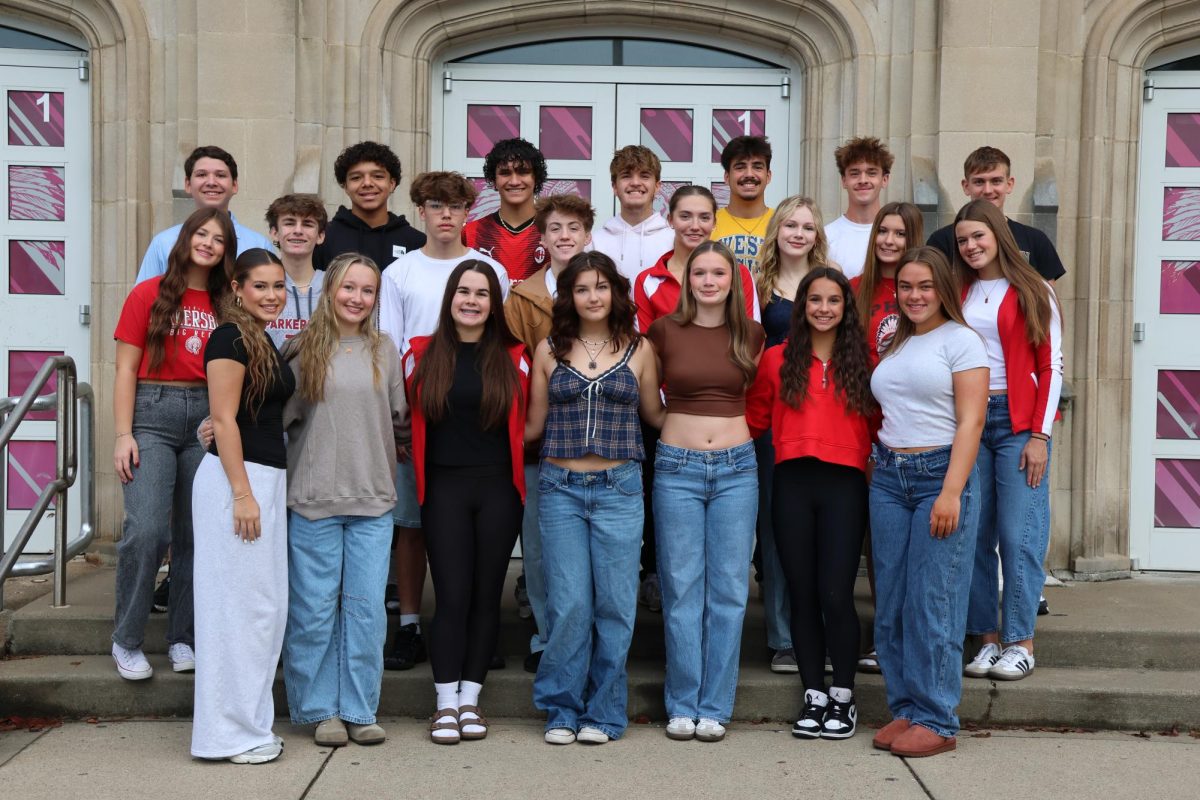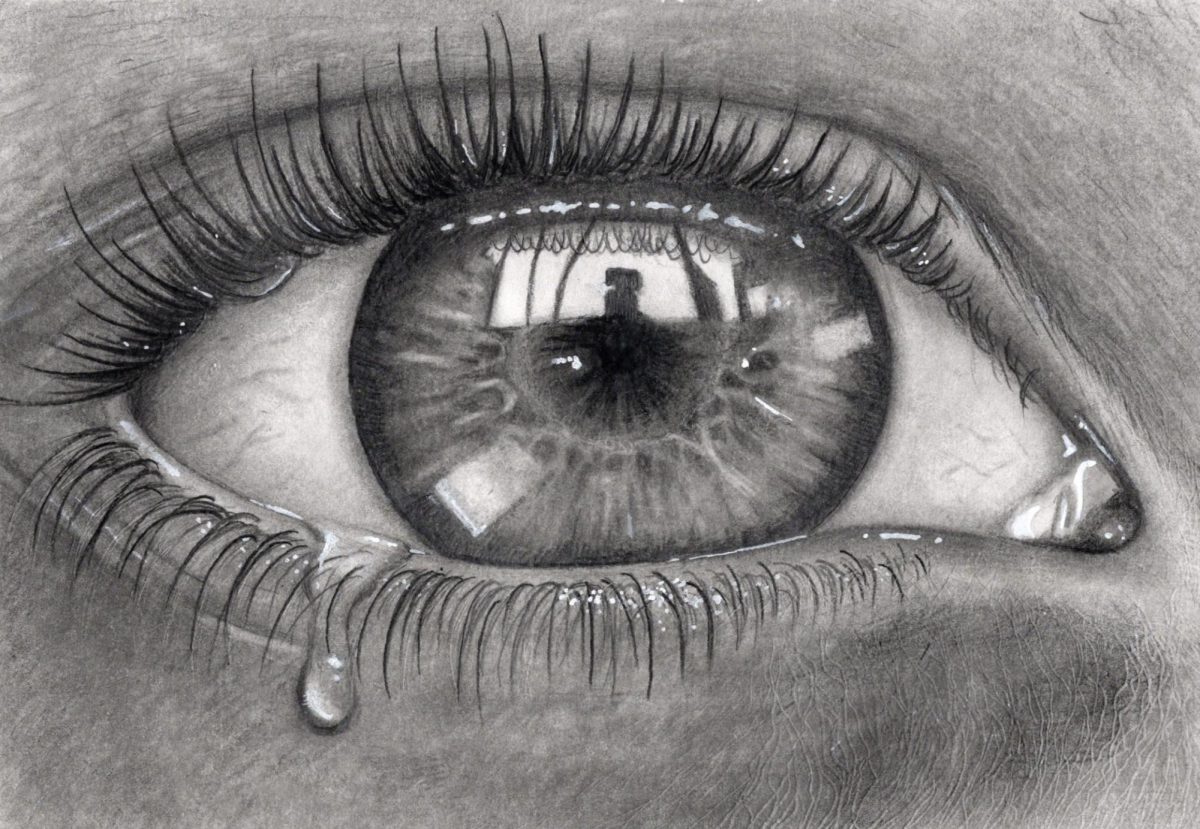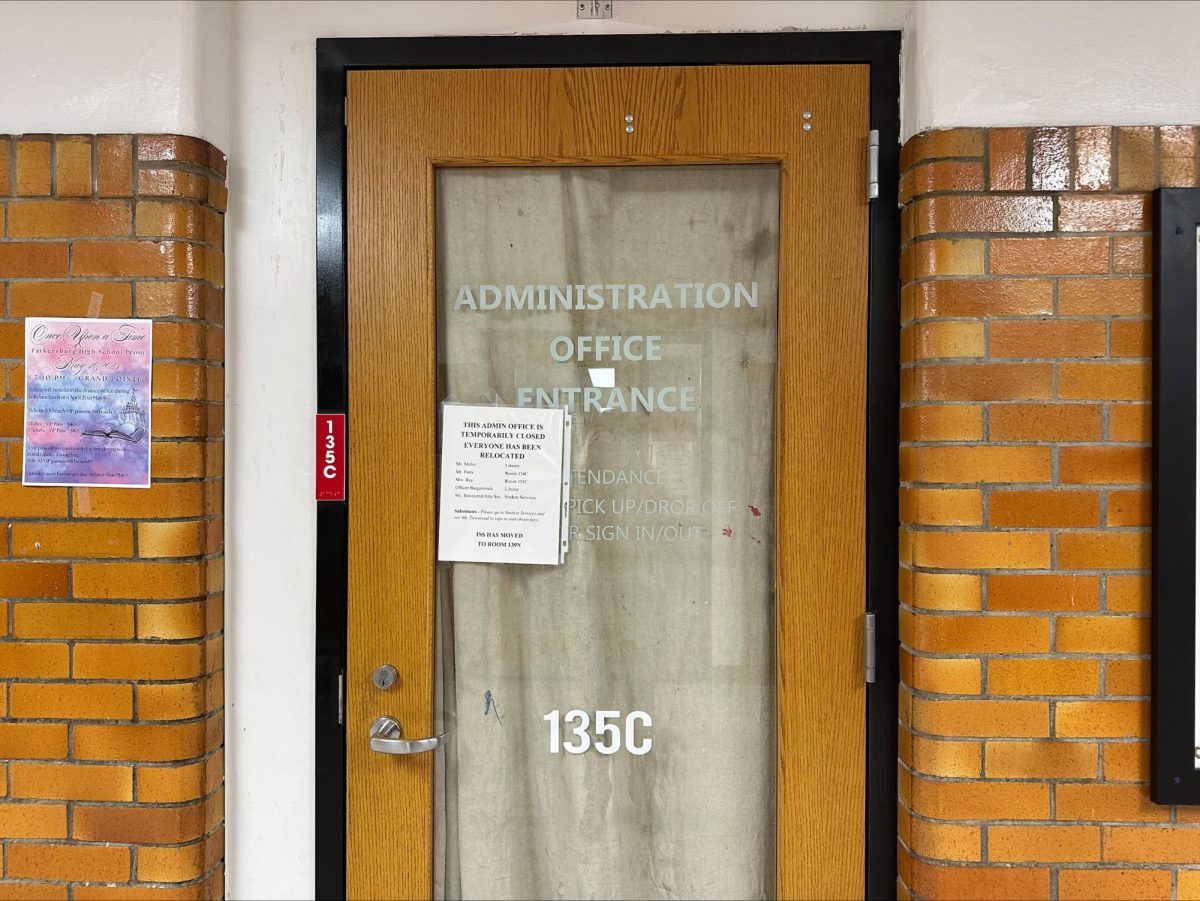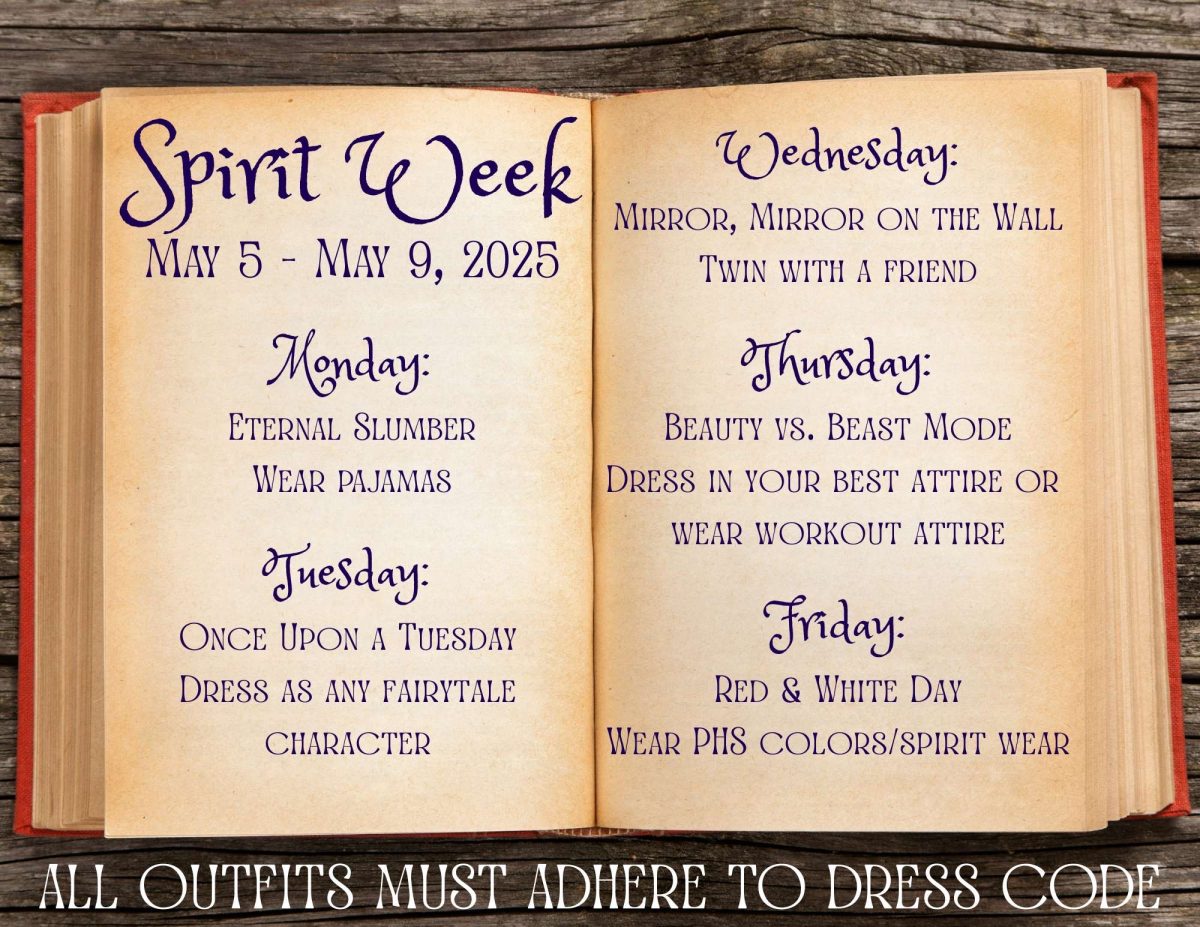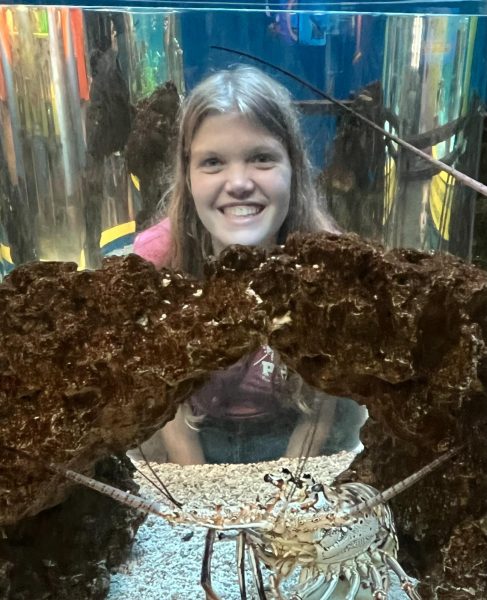Two Science Olympiad teams from PHS competed at the West Virginia Science Olympiad Tournament at Marshall University March 1. The PHS Red team earned third place overall and its members earned medals in many categories.
- Junior Smit Babariya and senior Deric Marshall: first in Air Trajectory.
- Junior Bryon Hupp and senior Truman Roberts: second in Dynamic Planet.
- Senior Manny Tewodros and Babariya: third in Electric Vehicle.
- Junior Keira McPeek, Marshall and senior Liam Guns: third in Experimental Design.
- Junior Lily Farinash and senior Sophie Miller: second in Microbe Mission.
- Babariya and Tewodros: second in Optics.
- Babariya and Roberts: first in Robot Tour.
- McPeek and senior Hoda Rashed: first in Tower.
- Guns and Babariya: second in Wind Power.
The White team also earned multiple medals.
- Seniors Matthew Carter and Viktor Reins: third in Anatomy & Physiology.
- Senior Olivia Shawver and junior Kayla Marlow: second in Disease Detective.
- Reins and junior Lars Youngstrom: first in Forensics.
- Juniors Aiden Matthews and Luke Kellison: first in Tower.
- Senior Daphne Cockerham and junior Luca Ticozzi: first in Write It, Do It
“I really enjoyed being on the team,” Reins said. “It was great meeting everyone who was on it and making friends, and I was really happy to see how many of us walked away with medals.”
Science Olympiad adviser Lisa Berry appreciated that students on both the red and white teams recognized that they were all representing PHS and chose to work with each other, even during events where they were competing.
“People on the Red team helped the people on the White team with the same event, even though they knew that they would be competing against each other,” Berry said. “They also knew that everybody was representing PHS, so when there were people from the other team winning medals, everybody was happy for everybody else.”
After a successful year with Science Olympiad and many juniors planning on returning to the team next year, Berry hopes that next year will be even better as it will be her last before retirement. Nationals is in California in 2026, and Berry believes many of the juniors want to get there. Berry is worried that, after she leaves, Science Olympiad won’t be picked up by another teacher and will end, but she hopes that enough new students will want to join so that it remains as a great opportunity for them.
“With Science Olympiad, it really creates a different type of opportunity because there are so many different events,” Berry said. “I think oftentime students get, whether they want to or not, get pushed out of their comfort zone, and sometimes they surprise themselves as to what they’re able to do.”

